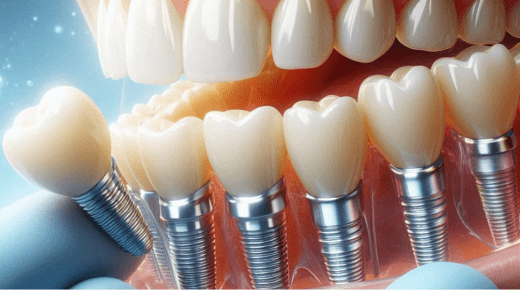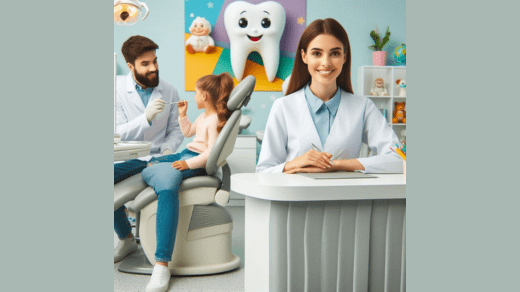Implant-supported dentures in Fontana, CA are a type of dental prosthesis that combines the stability of dental implants with the comfort and natural appearance of dentures. This innovative solution is designed for individuals who have lost multiple teeth or are edentulous (toothless), providing a secure, long-lasting, and aesthetically pleasing alternative to traditional dentures.
What are the types of implant-supported dentures?
There are several types of implant-supported dentures, including:
- Overdentures: Supported by 2-4 implants, these dentures can be removed for cleaning and maintenance.
- Fixed dentures: Permanently attached to 4-6 implants, these dentures provide maximum stability and are only removable by a dentist.
- Hybrid dentures: A combination of fixed and removable dentures, offering flexibility and stability.
- All-on-4/All-on-6: Full-arch dentures supported by 4-6 implants, providing a comprehensive solution for edentulous patients.
- Bar-retained dentures: Supported by a metal bar attached to 2-4 implants, these dentures offer added stability.
- Ball-retained dentures: Supported by ball-shaped attachments on 2-4 implants, these dentures provide secure retention.
- Locator-retained dentures: Supported by locator attachments on 2-4 implants, these dentures offer easy removal and reattachment.
- Screw-retained dentures: Permanently attached to implants using screws, these dentures provide maximum stability.
- Cement-retained dentures: Permanently attached to implants using dental cement, these dentures offer a secure and natural-looking solution.
- Custom implant-supported dentures: Tailored to individual needs, these dentures offer a personalized solution for optimal comfort and aesthetics.
Why do you need implant-supported dentures?
Indications for implant-supported dentures include:
- Edentulism: Loss of all-natural teeth in one or both jaws.
- Multiple tooth loss: Loss of several teeth in a row or scattered throughout the mouth.
- Unstable dentures: Existing dentures that slip, shift, or cause discomfort.
- Bone loss: Insufficient jawbone density or volume to support traditional dentures.
- Gum disease: Advanced periodontal disease leading to tooth loss.
- Tooth decay: Extensive tooth decay or rotting teeth.
- Trauma or injury: Teeth lost due to accident or injury.
- Congenital conditions: Birth defects or genetic conditions affecting tooth development.
- Denture intolerance: Inability to tolerate traditional dentures due to discomfort, pain, or gagging.
- Aesthetic concerns: Desire for a more natural-looking and feeling smile.
- Chewing difficulties: Trouble eating or digesting food due to tooth loss or unstable dentures.
- Speech difficulties: Trouble speaking clearly due to tooth loss or unstable dentures.
What are the benefits of implant-supported dentures?
Benefits of Implant-Supported Dentures:
Benefits of implant-supported dentures include:
- Improved stability: Securely anchored to implants, eliminating slipping or shifting.
- Enhanced chewing ability: Increased biting force and efficiency for better digestion.
- Natural appearance: Looks and feels like natural teeth.
- Boosted confidence: Restores self-assurance and smiles and pride.
- Increased comfort: No more gum irritation or discomfort from denture movement.
- Easy maintenance: Implant-supported dentures are easy to clean and maintain.
- Long-lasting: With proper care, implants can last a lifetime.
- Bone preservation: Implants stimulate the jawbone, preventing resorption and preserving facial structure.
- Improved speech: Clearer pronunciation and articulation.
- Reduced gum recession: Implants prevent gum recession and exposure of roots.
- No adhesives needed: Implant-supported dentures stay in place without adhesives.
- Improved oral health: Easier access for cleaning and maintenance.
- Increased bite force: Ability to eat a wider variety of foods.
- Reduced risk of tooth decay: Implants are resistant to decay.
- Customizable: Implant-supported dentures can be tailored to individual needs and preferences.
What is the procedure involved in implant-supported dentures?
The procedure for implant-supported dentures typically involves the following steps:
- Consultation and planning: Evaluation, imaging, and customization.
- Implant placement: Surgical insertion of implants into the jawbone.
- Healing and osseointegration: Implants integrate with the jawbone (3-6 months).
- Abutment attachment: Connecting abutments to the implants.
- Impressions and fabrication: Creating the custom denture.
- Try-in and adjustments: Fitting and refining the denture.
- Final placement: Attaching the denture to the implants.
Implant-supported dentures offer a life-changing solution for individuals seeking a secure, natural, and confident smile. Consult a dental professional to determine if this innovative option suits you.





